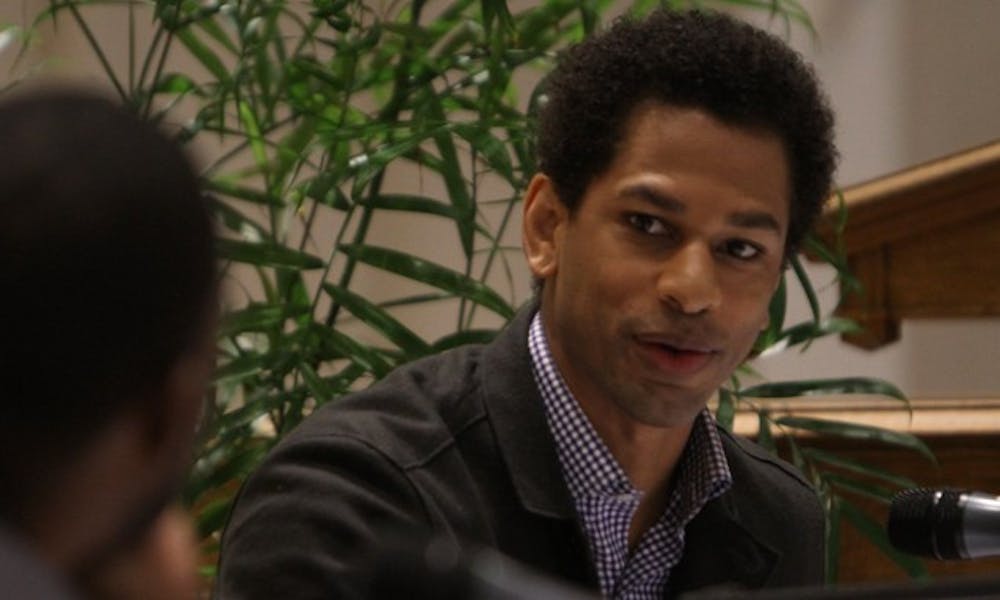People have the right to form their own identities, free of pressure from others, a social critic told students.
Touré, a journalist, television personality and author of “Who’s Afraid of Post-Blackness?” addressed a crowd of students in the Divinity School’s Goodson Chapel Thursday. He spoke on a panel of black scholars about the topic of racial identity.
“Why would I allow you to define who and how I should be?” Touré said. “I want the individual to define who they are.”
Touré developed the idea of post-blackness, which notes that being black is not limited by specific criteria or boxed into a certain set of standards.
“I don’t see why blackness cannot be infinite and still a thing.” Touré said. “I don’t want to erase blackness—I love being black.”
“Who’s Afraid of Post-Blackness?” was released in September. Touré said that he wrote the book to communicate the encompassing notions of black culture and to relate to readers on an emotional level.
“What I wanted to do was make sure that everyone who picked it up was like, ‘Wow, you really got to my heart’—and how I did that was really get to my own heart.” Touré said. “This book was written talking to black people, not for black people.”
The development of Touré’s book took place over two stages, beginning soon after President Barack Obama won the 2008 Iowa caucuses.
“The most intelligent black people —open-minded, optimistic —would have said, ‘America isn’t ready for a black president,’” Touré said. “When Iowa happened, America said, ‘Maybe this could happen.’”
In the second stage of development, Touré drew from an experience he had while living in a black house as a student at Emory University.
“There was a party at the black house, and there was some ridiculous argument about who’s going to clean up after the party,” Touré said. “Somebody said, ‘Shut up, Touré, you ain’t black.’ You’re in active identity formation mode when you’re in college, so that mattered very much to me when he said that.”
Panelist Blair Kelley, assistant professor of history at North Carolina State University, said repeated reassessments of black culture have occurred many times throughout American history.
“I’d argue that blackness has always been a moving target; I would also like to say that the renaming practice always seems to happen with shifts in citizenship,” Kelley said. “As much as I know Obama’s victory is not necessarily a black victory, it has called up this thing within black people to think about who we are in this particular moment.”
Social circumstances make it more difficult for some Americans to reimagine themselves and develop a new sense of identity.
“We are bound by the limitations of a nation that doesn’t always care how we reimagine ourselves,” Kelley said. “Not everyone has equal access to the way in which they can make these imaginings possible.”
Sherika Campbell, a junior at the University of North Carolina at Chapel Hill, said that she did not think a post-black society was achievable in the near future.
“I think we are becoming more tolerant; and we are becoming more enlightened; and we are having conversations like this about it—but I don’t know if conceptually, we can move to a post-black society,” Campbell said. “Would I say that we are a post-black society? I don’t think so. Do I think we’ll get there? I don’t think so—well not in my lifetime.”
Get The Chronicle straight to your inbox
Signup for our weekly newsletter. Cancel at any time.

